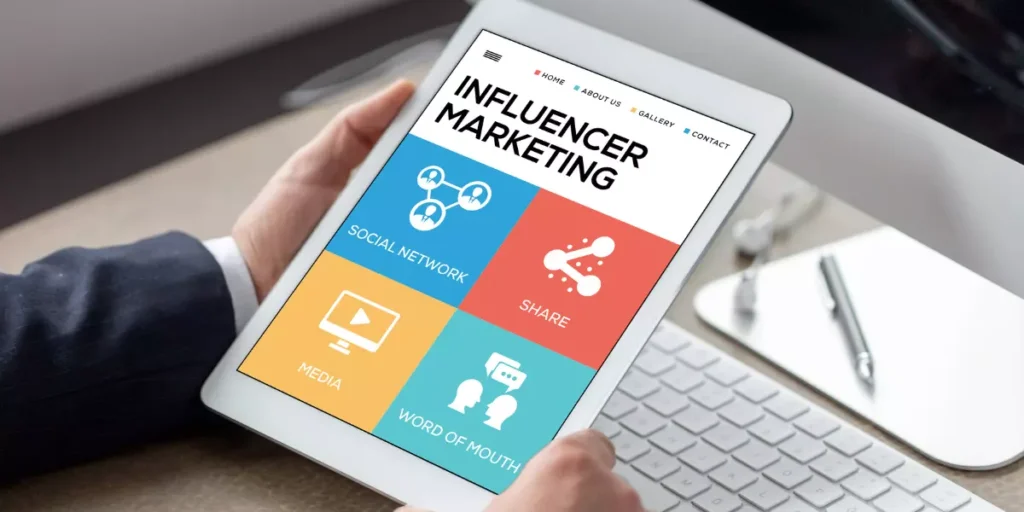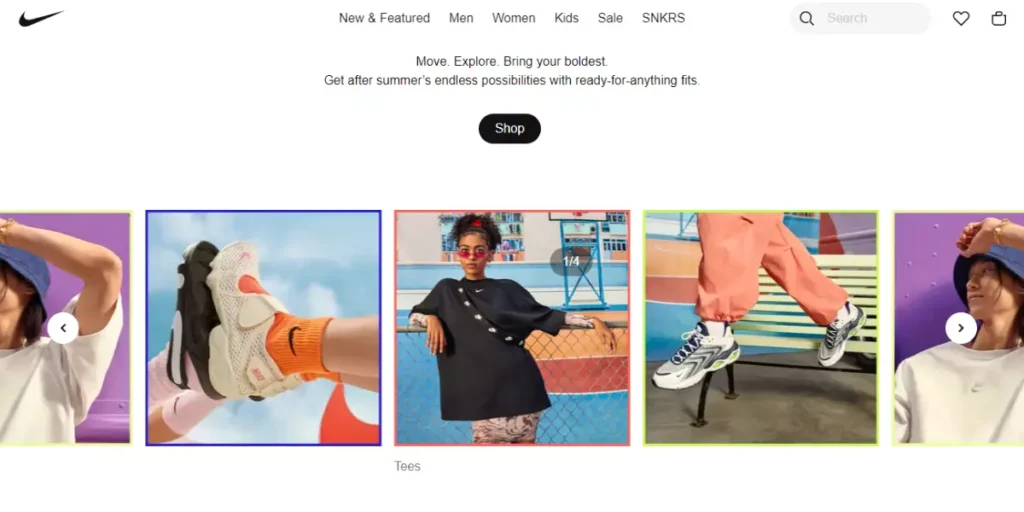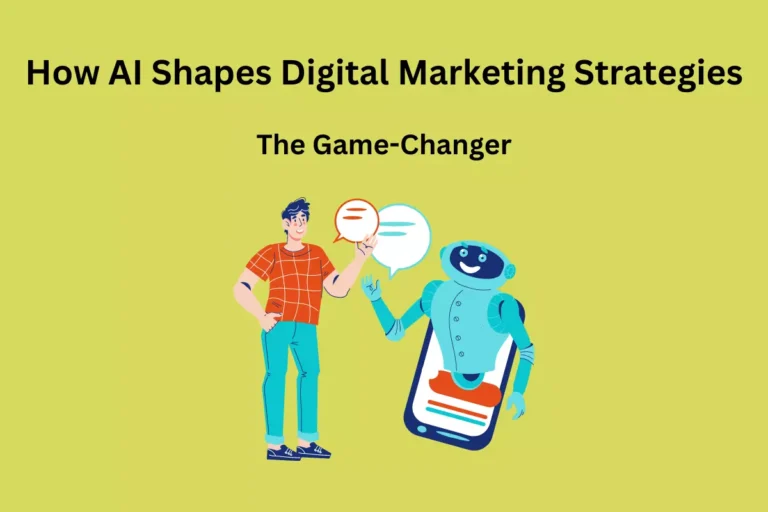In the rapidly evolving realm of digital marketing, it is crucial for businesses to stay one step ahead in order to remain competitive and stay ahead of the curve.
With the constant evolution of technology and consumer behavior,
being aware of the latest digital marketing trends can make a significant difference in the success of marketing campaigns and overall business growth.

Additional Resources:
The Game-Changer: How AI Shapes Digital Marketing Strategies
10 Must-Have Tools For Digital Marketing Freelancers
Understanding the Digital Marketing Landscape
To effectively navigate the digital marketing landscape, it’s crucial to have a solid understanding of the various channels and strategies available.
Digital marketing encompasses a range of platforms, including search engine optimization (SEO), social media marketing, content marketing, email marketing, and more.
Each channel requires a unique approach, and staying up-to-date with the latest trends can help businesses optimize their marketing efforts.
The Significance of Embracing Digital Marketing Trends
it has tangible benefits for businesses.
By adopting new trends, businesses can attract and engage their target audience more effectively,
generate higher-quality leads, increase brand visibility, and ultimately drive conversions and sales.
Ignoring or lagging behind in digital marketing trends can result in missed opportunities and falling behind competitors.
Emerging Digital Marketing Trends
Artificial Intelligence (AI) and Machine Learning (ML) in marketing
Artificial intelligence and machine learning technologies have revolutionized the marketing landscape.
Businesses can leverage AI to analyze vast amounts of data, gain valuable insights into consumer behavior,
and personalize marketing campaigns accordingly.
ML algorithms help optimize various marketing processes, such as ad targeting, content recommendation, and lead nurturing,
by continuously learning and adapting to user preferences.

Voice Search and Voice-Activated Assistants
The increasing prevalence of voice-activated assistants and the growing popularity of voice search have significant implications for SEO and content strategy.
Optimizing content to be voice search-friendly requires understanding user intent,
focusing on long-tail keywords, and providing concise yet informative answers to common questions.
Businesses need to adapt their SEO and content strategies to capture the voice search market effectively.

Video Marketing and Live Streaming
Video content continues to dominate the digital landscape, capturing the attention of audiences and fostering engagement.
Incorporating video marketing into digital strategies can boost brand awareness,
convey messages more effectively, and create a memorable brand experience.
Additionally, leveraging live streaming platforms offers opportunities for businesses to engage with their
audience in real-time, host interactive events, and showcase behind-the-scenes content.

Influencer Marketing
Influencer marketing has become a powerful tool for brands to connect with their target audience authentically.
Collaborating with influencers who have a dedicated following allows businesses to tap into their influence and reach.
Identifying the right influencers based on audience demographics, values alignment, and engagement rates is crucial for successful influencer partnerships.
Measuring the return on investment (ROI) of influencer campaigns is equally important to assess their effectiveness.

User-Generated Content (UGC)
User-generated content has gained prominence as a way to enhance brand advocacy and build a sense of community.
Encouraging customers to create and share content related to the brand fosters authenticity and trust.
Implementing strategies such as branded hashtags, contests, and user testimonials can inspire customers to generate UGC.
Curating and featuring UGC on social media platforms and websites further amplifies its impact.

Augmented Reality (AR) and Virtual Reality (VR) in marketing
Augmented reality and virtual reality technologies offer unique opportunities for businesses to deliver immersive experiences to their audience.
AR can be used to overlay digital elements onto the real world, enhancing product visualization and offering interactive experiences.
VR creates fully immersive environments, allowing users to explore virtual spaces and engage with branded content in a captivating way.
Integrating AR and VR into marketing campaigns can leave a lasting impression on customers.

Strategies for Implementing Digital Marketing Trends
Implementing digital marketing trends successfully requires careful planning and execution.
Businesses can follow these strategies to maximize the impact of new trends:
Conducting thorough research and analysis
Before adopting a trend, it’s essential to conduct comprehensive research
to understand its potential benefits, challenges, and feasibility within the business context.
Analyzing market trends, competitor strategies, and consumer behavior helps identify opportunities and avoid pitfalls.
Setting clear goals and objectives
Clearly defining goals and objectives is crucial to ensure that the adoption of a trend aligns with the overall marketing strategy.
Setting measurable targets allows businesses to track progress and evaluate the effectiveness of new initiatives.
Allocating resources and budgets
Implementing new trends often requires allocating resources, including human capital, budget, and technology infrastructure.
Adequate resource allocation ensures that businesses have the necessary tools and capabilities to implement trends effectively.
Testing and measuring the effectiveness of new trends
Before fully integrating a new trend into marketing efforts, conducting tests and pilot programs can provide valuable insights.
Monitoring and measuring key performance indicators (KPIs) help determine the impact and ROI of the trend.
Staying adaptable and open to experimentation
The digital marketing landscape evolves rapidly, and trends may come and go.
To stay ahead of the game, businesses need to remain adaptable and open to experimentation.
Being willing to embrace new ideas and iterate on strategies allows businesses to adapt to changing consumer preferences and market dynamics.
Overcoming Challenges in Adopting Digital Marketing Trends
While embracing digital marketing trends is essential, businesses may encounter challenges along the way.
Here are some common hurdles and ways to overcome them:
Resistance to change within organizations
Introducing new trends may face resistance from internal stakeholders who prefer the status quo.
To overcome this,
businesses can emphasize the potential benefits, provide training and support,
and showcase success stories from industry peers.
Balancing between established strategies and new trends
Finding the right balance between existing marketing strategies and new trends can be challenging.
Businesses should assess the compatibility of new trends with their current approach
and gradually integrate them while monitoring the impact on overall performance.
Addressing privacy and ethical concerns
As digital marketing evolves, privacy and ethical concerns arise.
Businesses must prioritize consumer privacy,
comply with data protection regulations,
and maintain transparency in their marketing practices.
Case Studies of Successful Implementation of Digital Marketing Trends
Examining successful implementation of digital marketing trends provides valuable insights and inspiration for businesses.
Here are a few examples:
- Nike: Nike has effectively embraced digital marketing trends by leveraging social media platforms, creating engaging content, and implementing personalized marketing campaigns. Through their innovative use of technology and digital platforms, Nike has successfully connected with their target audience, enhanced brand awareness, and increased customer engagement.

- Airbnb: Airbnb has harnessed the power of user-generated content and influencer marketing to drive their digital marketing strategies. By encouraging their users to share their unique experiences and promoting user-generated content on social media, Airbnb has created an authentic and relatable brand image. Additionally, they have collaborated with influencers to expand their reach and attract new customers, further strengthening their digital marketing efforts.

- Coca-Cola: Coca-Cola has utilized experiential marketing and interactive digital campaigns to connect with their consumers. Through interactive vending machines, personalized advertisements, and immersive digital experiences, Coca-Cola has created memorable brand interactions. These initiatives have helped them stay relevant in the digital age and maintain a strong presence in the market.

- Spotify: Spotify has leveraged data-driven marketing strategies to personalize user experiences and provide tailored recommendations. By analyzing user listening habits and preferences, Spotify delivers personalized playlists, targeted advertisements, and relevant content recommendations. This data-driven approach has contributed to their success in retaining users and attracting new subscribers.

- Dollar Shave Club: Dollar Shave Club disrupted the shaving industry through their innovative digital marketing strategies. With humorous and relatable content, engaging social media campaigns, and a subscription-based model, they have effectively reached their target audience and built a loyal customer base. Their digital marketing efforts have enabled them to compete with established brands and achieve rapid growth.

Conclusion
In the dynamic world of digital marketing, staying ahead of the game is paramount.
By embracing the latest digital marketing trends,
businesses can enhance their marketing efforts, engage their target audience effectively,
and drive business growth. With a strategic approach, thorough research,
and an openness to experimentation, businesses can harness the power of emerging trends
and maintain a competitive advantage in the digital landscape.
Now I would love to hear from you.
Make yourself known by leaving a comment here. I look forward to your response and welcome any other ideas as they emerge!
As a digital marketing consultant, My ultimate goal is to empower businesses to thrive in the digital landscape.
I believes that a well-executed digital strategy can transform a company’s online presence, drive growth, and create meaningful connections with target audience.
To Know More Click Here!







